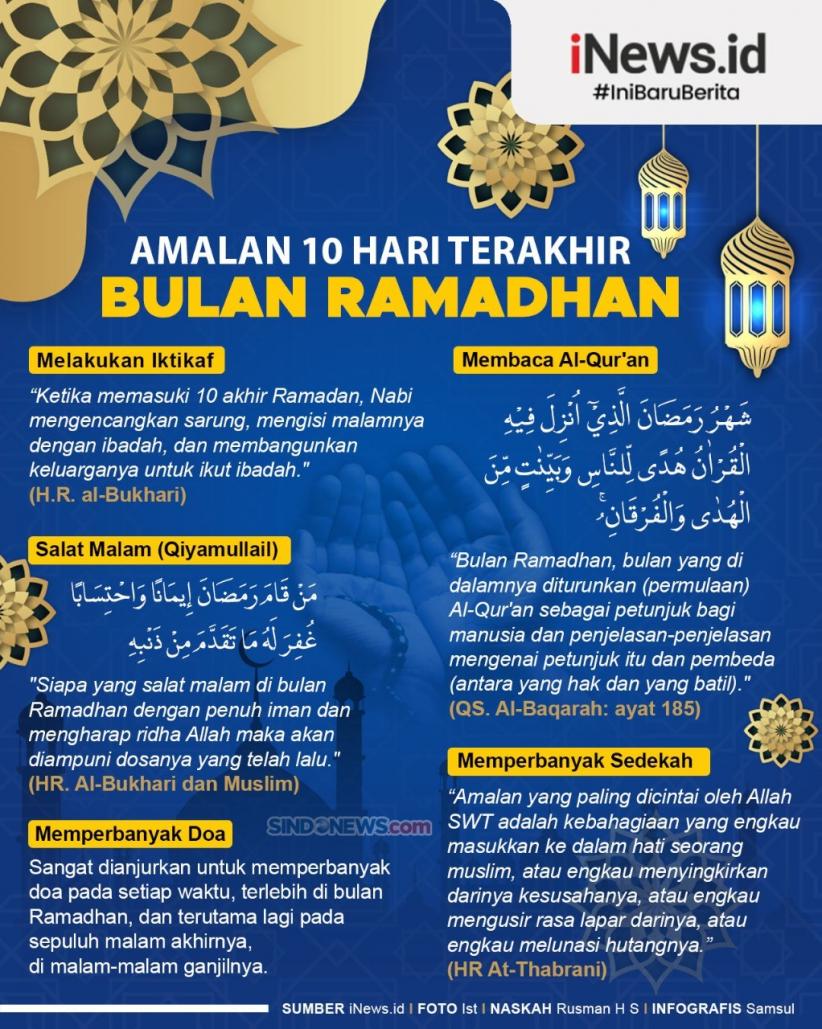6 Amalan yang Dianjurkan di 10 Hari Terakhir Ramadhan

I’tikaf is the practice of secluding oneself in a mosque for the purpose of worship and devotion. It’s like hitting the "pause" button on the world and focusing solely on your relationship with Allah. This involves staying in the mosque, engaging in prayer, reading the Quran, making supplications, and reflecting on your life.
Why Do I’tikaf?
Imagine escaping the constant distractions of everyday life – the emails, the phone calls, the social media notifications. I’tikaf provides that sanctuary. It allows you to disconnect from the material world and reconnect with your spiritual core. It’s a time for introspection, repentance, and seeking closeness to Allah.
How to Perform I’tikaf
- Intention (Niyyah): Begin with a sincere intention to dedicate your time to Allah.
- Stay in the Mosque: Remain in the mosque for the duration of your I’tikaf.
- Engage in Worship: Spend your time praying, reading the Quran, making supplications (dua), and reflecting.
- Avoid Worldly Distractions: Minimize talking, avoid unnecessary interactions, and focus on your spiritual pursuits.
2. Increase Your Recitation of the Quran
The Quran: A Guide and a Healer
The Quran is the word of Allah, a guide for humanity, and a source of healing for the soul. During Ramadan, and especially in the last ten days, we should strive to increase our recitation of the Quran.
Tips for Increasing Quran Recitation
- Set a Daily Goal: Aim to read a certain amount each day.
- Understand the Meaning: Read the translation and commentary (tafsir) to deepen your understanding.
- Listen to Recitations: Listen to beautiful recitations of the Quran to inspire you.
- Reflect on the Verses: Take time to reflect on the meaning of the verses and how they apply to your life.
3. Make Abundant Dua (Supplication)
Dua: The Weapon of the Believer
Dua is a powerful tool that allows us to communicate directly with Allah. It’s a way to express our needs, our hopes, our fears, and our gratitude. During the last ten days of Ramadan, we should make abundant dua, asking Allah for forgiveness, guidance, and blessings.
Tips for Making Effective Dua
- Be Sincere: Make dua with a sincere heart and genuine intention.
- Be Specific: Ask for what you need clearly and specifically.
- Have Faith: Believe that Allah will answer your dua.
- Persist: Don’t give up if your dua is not answered immediately.





